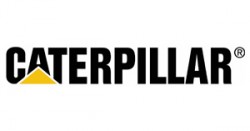 Twenty two trucking and transportation firms and individuals in 18 states filed a class action lawsuit against Caterpillar alleging defects in its ACERT engines cause power losses and shutdowns resulting in “significant losses” due to delays in trucking and shipping goods.
Twenty two trucking and transportation firms and individuals in 18 states filed a class action lawsuit against Caterpillar alleging defects in its ACERT engines cause power losses and shutdowns resulting in “significant losses” due to delays in trucking and shipping goods.
Joining at least 16 other actions against the diesel engine producer, the lead plaintiffs allege that the Advanced Combustion Emissions Reduction Technology (ACERT) in affected diesel engines contains defects that result in power losses and engine shut downs.
The technology is meant to keep intake air clean by unique aftertreatment equipment using a exhaust-gas recirculation (EGR) system that pipes cleansed gas back to the inlet system, according to the Caterpillar class action lawsuit. EGR cools combustion temperatures to reduce production of nitrogen oxide, a regulated emission. However, the Caterpillar class action lawsuit alleges this system, its series-turbochargers and other devices cause problems that fleet managers have complained about over the years.
The plaintiffs allege that they suffered “significant damages” from operational losses, diminished vehicle value, and costs incurred in replacing the Cat engines with other EPA 2007 emission-legal diesels. “Many of these trucking and transportation operations are small businesses and family-owned shops that can’t afford to have trucks break down due to defects,” said an attorney representing the plaintiffs. “Having their trucks out of commission created a financial hardship for these operators that Caterpillar has a responsibility to resolve, including the significant loss in value of the trucks due to the defects.”
The plaintiffs filed this most recent class action lawsuit against Caterpillar under seal on Oct. 6 in the U.S. District Court for the District of New Jersey. In it, they allege the engine contains a number of known product problems, including that the engine system was not designed, built and equipped to conform with exhaust emission regulation standards without causing repeated engine failures or shut down commands that caused the vehicles to lose power and/or stop running. The plaintiffs argue that Caterpillar falsely marketed the design as a reliable, durable and fuel-efficient system. An attorney for the plaintiffs explained, “Each time their vehicle had problems, these plaintiffs repeatedly were told that an emissions warranty repair would correct the defect, when Cat knew, or should have known, that the exhaust emission system defect could not be corrected.”
Similar litigation is pending in the same New Jersey federal court on behalf of defective Caterpillar C13 bus engines that involve the same defective ACERT systems, the law firm said. Class action lawsuits have been filed in Minnesota and Colorado as well. In sum, Motor carriers, bus lines and at least one boat operator have filed lawsuits in various jurisdictions against the engine manufacturer, all relating to the same alleged defect.
The 22 truck engine plaintiffs represent purchasers and lessees of vehicles with the EPA 2007 Cat engines in California, Florida, Illinois, Indiana, Kansas, Maryland, Michigan, Minnesota, Missouri, New Jersey, New Mexico, New York, North Carolina, Ohio, South Dakota, Texas, Utah and Wisconsin.
The plaintiffs are represented by Shepherd, Finkelman, Miller & Shah, LLP, and Quantum Legal LLC, as well as Cohen Milstein Sellers & Toll PLLC.
ATTORNEY ADVERTISING
Top Class Actions is a Proud Member of the American Bar Association
LEGAL INFORMATION IS NOT LEGAL ADVICE
Top Class Actions Legal Statement
©2008 – 2026 Top Class Actions® LLC
Various Trademarks held by their respective owners
This website is not intended for viewing or usage by European Union citizens.














